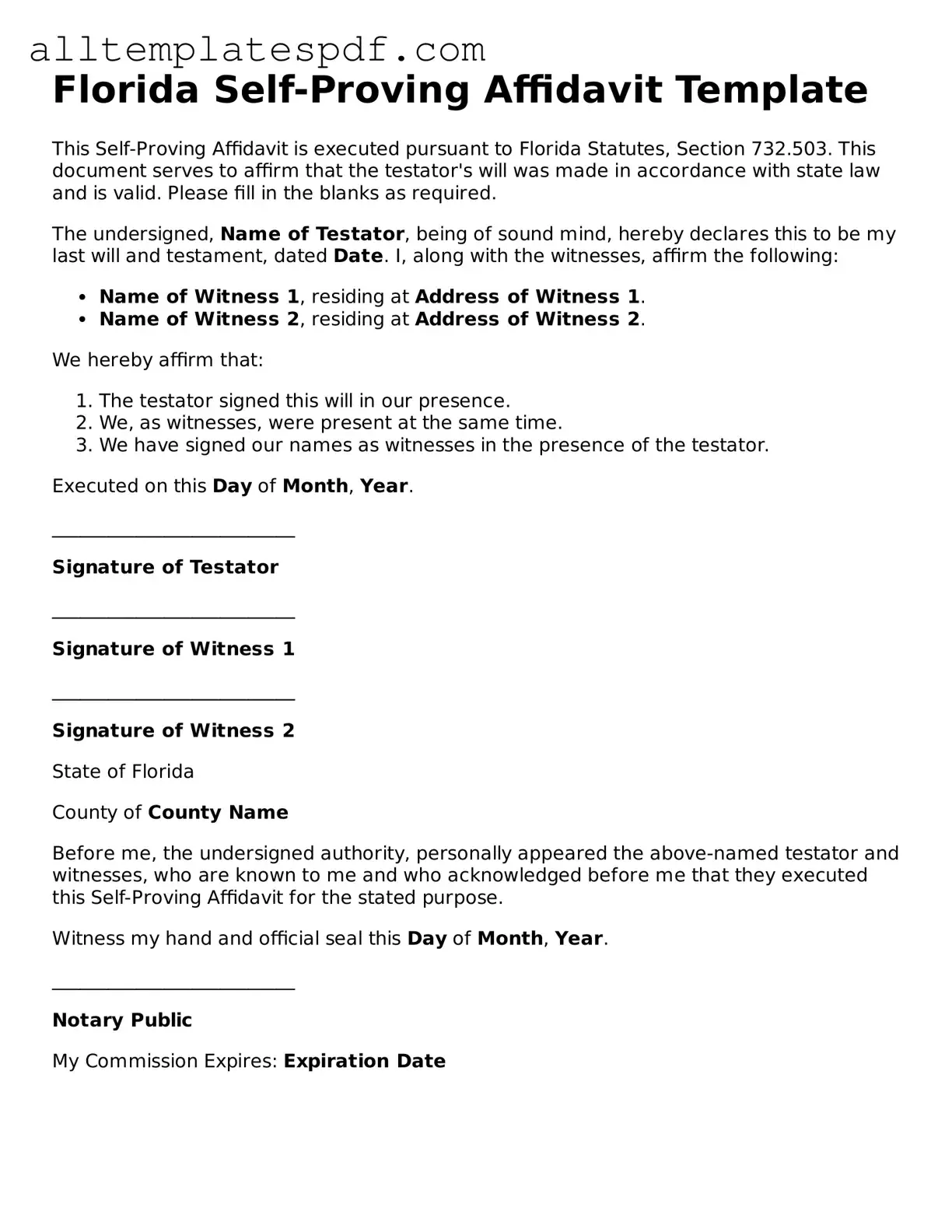Blank Self-Proving Affidavit Template for the State of Florida
The Florida Self-Proving Affidavit is a legal document that allows a testator's will to be validated without the need for witnesses to testify in court. This form simplifies the probate process, ensuring that the wishes of the deceased are honored efficiently. By utilizing this affidavit, individuals can save time and reduce potential disputes among heirs.
Ready to simplify your estate planning? Fill out the Florida Self-Proving Affidavit form by clicking the button below.
Open Editor

Blank Self-Proving Affidavit Template for the State of Florida
Open Editor
Fast and easy form completion
Complete Self-Proving Affidavit digitally — fast and easy.
Open Editor
or
↓ Self-Proving Affidavit PDF Form
